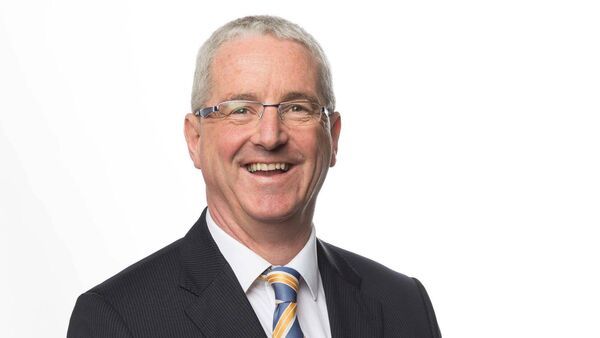I think it’s fair to say that the only constant in our working lives right now is changing. Indeed, I envisage that post the Covid pandemic many of us will go on and make further changes, a change in our career path, either due to a forced redundancy or simply as a result of stress and burnout. Employment lawyers tell us this phenomenon is on the rise, due to more fluid work boundaries, as a consequence of working from home. The pandemic aside, changing careers is much more common than it once was. This makes perfect sense, given that we grow and develop as we journey through life, and our needs change. We may find something we once did less fulfilling, or it is no longer aligned to who we are as a person.
So, sometimes changing careers is something we do for ourselves to find greater fulfillment, meaning, or career happiness.
Other times it may be out of necessity. The sector we once worked in for example may no longer be an option for us. Whatever your reason for changing your career, you need to manage it carefully to safeguard your future and optimise your chances of a successful outcome.
As a career changer, I know what it takes. And I can tell you it can be a challenging journey, but also a very worthwhile one.
Here are some tips to help you on your way, and which will increase your chances of a positive result:
Review your current job (if you have one). What is it you do not like or drains you? What aspects of the job appeal to you? Is it possible that the job can be re-designed to suit your interests and strengths? Are there opportunities for you to take on new challenges or additional responsibilities for example? Think about our changing world and where you could add value. Your manager may be happy to discuss job enrichment or job enlargement options with you, so bear this in mind.
Reflect on your career journey to date: What are the areas you enjoyed the most and gave you a buzz? It’s likely that you were playing to your strengths while performing these tasks. Think about your interests, your childhood interests, your skills and strengths (many of which are transferrable), your values, your purpose, and your personality. Where might they best fit?
Research the career areas that appeal to you: Talk to others who work in the field. Use LinkedIn to connect. Invite selected people for a virtual cup of coffee, and ask them about what they do, what they like and do not like about their role. Think ahead about what you want to ask them and consider how you want to introduce yourself. They may be a valuable connection at a later date. Connect with or follow the thought leaders in the field. This is a great way of learning about the industry and gaining further insights. Talk also to others in your network, be it the parents at the school gate or sports pitch, the members of your golf or tennis club, your mountaineering club, your book club, and so forth.
Step out of your comfort zone and embrace the change: In Maslow’s words, at any time we have two options; to step forward into growth or step back into safety. Successful change is not possible unless we take off our comfort blanket. Think about the benefits of making the change and how it will benefit you and those around you. Plan with the end in mind.
Build it slowly: If possible, try and dip your toe in the water first. Test the new area on a part-time basis and see if you like it. It might be possible for you to volunteer or to try something at weekends while maintaining your own job. Is it feasible for you to reduce the days worked in your current role and try out the new area on the other days? Consider any training or upskilling that may be required. When you make a career change your earnings may be less for a while, so plan for this also.
Believe in yourself. There will be setbacks along the way. Stay positive. Positive emotions alert us to opportunities and motivate us to avail of them. They help us to engage with life, to be open to new things, new people, new ideas and experiences, to rise to challenges and to keep going in the face of setbacks. See every obstacle as an opportunity in disguise and trust your intuition.
Maintain your wellbeing. Meditate, walk, play tennis, chess, or whatever it is you like to do to switch off. Have a good support network. Not everyone will agree with your decision to change, so be confident in your own decision first before telling others.
Reach out to a career coach: It can be beneficial to reach out to a career coach, an independent professional who can offer you a safe space to reflect and explore your options. You can avail of strengths profiling or other psychometrics designed to increase your insight and self-awareness. Career coaching can help you gain clarity around what you want and what you would like your future to look like. A career coach can use a range of proven techniques and tools to support you with goal-setting for transitioning and moving forward with confidence. One of my recent clients summarised his experience as follows, “In looking to uncover what options and opportunities may exist to advance, enhance or even change my career path, Mary at CareerChanger.ie took the time to listen and understand the complex challenges I face, to then be able to offer supportive guidance in how to identify and unlock the potential within myself, and how to use it to build connections with others, that has opened up exciting career avenues. Exploring your potential is something I would recommend to anyone, and the service Mary offers at CareerChanger.ie, facilitates just that”.
Mary Cummins, B. Sc, M.A. is a Career Coach and Facilitator and proprietor of Careerchanger.ie. Mary has studied Psychology to degree level and holds an honours M.A. in Learning & Development (consultancy) from UCC. Her work is driven by her passion to help clients find greater levels of career happiness and wellbeing.










